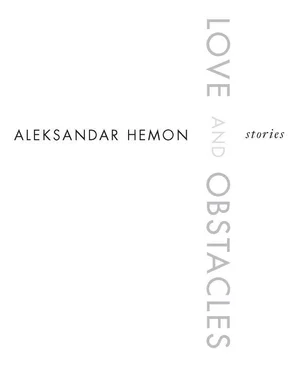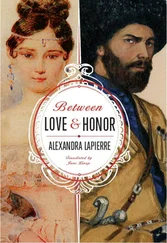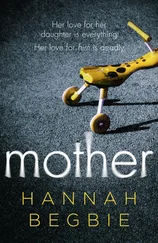Aleksandar Hemon - Love and Obstacles
Здесь есть возможность читать онлайн «Aleksandar Hemon - Love and Obstacles» весь текст электронной книги совершенно бесплатно (целиком полную версию без сокращений). В некоторых случаях можно слушать аудио, скачать через торрент в формате fb2 и присутствует краткое содержание. Издательство: Penguin USA, Inc., Жанр: Старинная литература, на английском языке. Описание произведения, (предисловие) а так же отзывы посетителей доступны на портале библиотеки ЛибКат.
- Название:Love and Obstacles
- Автор:
- Издательство:Penguin USA, Inc.
- Жанр:
- Год:неизвестен
- ISBN:нет данных
- Рейтинг книги:5 / 5. Голосов: 1
-
Избранное:Добавить в избранное
- Отзывы:
-
Ваша оценка:
- 100
- 1
- 2
- 3
- 4
- 5
Love and Obstacles: краткое содержание, описание и аннотация
Предлагаем к чтению аннотацию, описание, краткое содержание или предисловие (зависит от того, что написал сам автор книги «Love and Obstacles»). Если вы не нашли необходимую информацию о книге — напишите в комментариях, мы постараемся отыскать её.
Love and Obstacles — читать онлайн бесплатно полную книгу (весь текст) целиком
Ниже представлен текст книги, разбитый по страницам. Система сохранения места последней прочитанной страницы, позволяет с удобством читать онлайн бесплатно книгу «Love and Obstacles», без необходимости каждый раз заново искать на чём Вы остановились. Поставьте закладку, и сможете в любой момент перейти на страницу, на которой закончили чтение.
Интервал:
Закладка:
“You might wanna munch on a banana or something,” he said. “You are pale as shit.” Abruptly he stood up, startling me, and charged off to the kitchen. Natalie’s face was ashen, her lips pink; a single hair stretched from her forehead to her mouth, where it curved toward the right corner. Before I could make any decision, I inhaled and leaned toward her, planting a kiss where the hair touched her mouth. She opened her eyes and widened her smile until I could see her tongue tip protruding between her teeth.
I retreated into my throne of stupor just as Spinelli came back with a huge, blazingly yellow banana in hand. He offered it to me and said:
“Would the monkey like a banana?”
The monkey ate the banana, promptly passed out, and dreamt of two women, one fat, one slim, knitting black wool to the rhythm of drums, chanting angrily: “Spinelli! Spinelli! Spinelli!” Whereupon I woke to see Tata in his pith helmet and flannel pajamas yelling at Spinelli and shaking an enraged, ruddy finger before his face. Spinelli had his hands on his hips, and they slowly curled into fists; he was about to punch my father. I wanted to charge to Tata’s defense, but my limbs would not move. Natalie sat up and said: “Steve, let it go, let Bogdan take the boy home.” The bunched-up hair on the right side of her head had the shape of a harp, or half a heart.
“All right, man, I apologize. We were just partying a little,” Spinelli said. “Hopefully, it’s all bridge under the water.”
Walking downstairs was much like crossing an underwater bridge: an invisible stream pushed against my knees, I could not feel the solid concrete under my feet. Tata practically carried me, his hand grasped my flesh ungently, sternly. He talked to me, but I could hear only the tone of his voice: it was angry and quivering. Downstairs, Mama and Sestra sat on the couch like a two-member jury; Sestra watched me with slumberous amusement; Mama’s face was awash in tears. For some reason, it was all funny to me, and when Tata dropped me into the armchair across from them, I slid down to the floor and convulsed in laughter.
Later, in the middle of the night, I tottered to the kitchen, found the trash bin in the darkness, pressed the pedal to open the lid, and then pissed a thick, pleasurable stream into its mouth.
There was no talk given by my parents, no warnings about drugs and alcohol, no lectures about self-respect, no complaints about cleaning up the piss lake on the kitchen floor. They just stared at me, mute, across the dinner table: Tata worrisomely pouted, contemplating the troubling questions of my future; Mama pressed her hand against her cheek, shaking her head at the extraordinary bad luck in having me for a son, tear gems forming in the corners of her eyes.
I was forced to go everywhere they went: to Lolo La Crevette, where we devoured shrimp with Vaske, a malarial Macedonian prone to delivering unhurried reports on his talkative cockatoo; to the Portuguese club, where I watched two decrepit Frenchmen ineptly play tennis and scream at a skinny boy fetching their scattershot balls; to the Belgian supermarket, pristinely overlit, where everyone was immaculately white, as if the place had been magically transported from the pallid heart of Brussels. I often carried Heart of Darkness around and tried to read when no one was talking to me, which was very far from often enough. All I wanted was to be alone.
But I was alone only when I smoked on the balcony in the tarrish heat, hoping to see Spinelli or Natalie on the street, and I never did. There was no shuffling of the feet upstairs, no slamming of the door, no drumming or hollering along with Led Zeppelin. When I thought of our time together, I could not recall our doing anything or being anywhere. All I could recollect was his voice, mouthy and squeally, reciting his adventures: Spinelli going up the Congo with a crew of mercenaries, looking for a fallen Soviet satellite; Spinelli running into cannibals who thought he was a god because he produced a coin from behind the ear of a warrior; Spinelli in Angola, submerged in a shallow river up to his eyes, like a hippo, invisible to the Cuban patrol searching for him; Spinelli with a defector-to-be in a Durban restaurant, spooning raw monkey brain out of a cut-open skull.
One Sunday we went to the Czechoslovakian ambassador’s garden party in Gombe. There was beer and champagne, maracujá juice and punch; there were piles of nibblets and fruit, offered on vast trays by a couple of humble servants; there were the blonde twin daughters of the Romanian ambassador; there were Our Excellency and his wife; and there were a lot of wily communist kids scurrying around and taunting the angry chimpanzee in a cage by the garden shed. I wanted to find a quiet spot and read, but Tata compelled me to join a volleyball game. We played on the sandlot between two enormous palms whose leaves, like monster quills, hung high over the net. We were on the same team with a squat Bulgarian whose many gold chains rattled every time he swung to miss the ball, and with the Romanian twins, who leapt for the ball gracefully and fell down on their asses stupidly. Fortunately, there was also a Russian named Anton, tall and lanky, potato-nosed, gray-eyed. He was by far our best player and handily destroyed the other team. He showed me how to make my fingers flexible so the ball floated high enough for Tata to smack it into our ambassador’s excellently flabby flesh.
Anton was the only man who did not smoke or drink after the game; indeed, he did not even drink water; he knew how to retain control. I followed him and Tata to a table under an enormous umbrella; they spoke Russian to each other, and Anton’s voice was deep and curt, used to giving orders. He tapped on the table with his agitated finger; Tata threw his arms up; they looked at me every now and then. I did not understand what they were talking about, but I could hear the name Spinelli rising out of the Slavic gibberish. A flare of hope went up in my chest, and when I turned around I saw Natalie walking barefoot toward me in a diaphanous white dress, the sun transforming her tresses into a halo. But it was in fact one of the Romanian twins, guzzling beer out of a large mug, two streaks curving from the corners of her mouth toward her bepimpled chin.
Soon thereafter we went east for the promised safari. A man was waiting for us on the tarmac of the Goma airport; we saw him as soon as we stepped out of the plane. He wore dark shades, a white shirt, and a black tie; he walked up to Tata and shook his hand diplomatically, as though welcoming a dignitary. He spoke to him in French, then switched to English for us—or me, rather, even if he was looking at Mama—welcoming us to Goma and wishing us a pleasant stay at the Karibu Hotel, as well as a successful safari. His name was Carlier; he assured us he was at our service, and kissed Mama’s hand while she tried to extract it from his grip. He stroked Sestra’s hair and nodded at me, as if he thought I was tough and he respected it.
Carlier was slurring his words, and I could not figure out whether that was his accent or he was drunk. Except for his shades and a large diamond ring on his middle finger, he resembled a butcher in a poor neighborhood: a heavy, fat-rounded head, large ears with meaty earlobes, blood speckles on his mercilessly scraped face. He bribed our way through the ovenlike airport, extending his money-stuffed hand to uniformed officers and importantly frowning Small Vegetables. Outside the airport, he chased away a swarm of cabbies and crap-hawkers and led us to a van next to which a man stood at attention in a full suit with a tightly knotted tie. Carlier barked at him and he leapt like a leopard to open the door for us.
The streets of Goma were enveloped in roiling clouds of black dust. In an uncanny, disturbing moment, I recognized that everyone in sight was barefoot, and I could not remember what the purpose of shoes was. But then I saw booted policemen standing on the porches, leaning against the walls, like idle villains in westerns, and the world of straightforward facts was restored. When we stopped to let a skittish herd of goats pass, nobody approached the van to offer us carved human bones or knitting needles.
Читать дальшеИнтервал:
Закладка:
Похожие книги на «Love and Obstacles»
Представляем Вашему вниманию похожие книги на «Love and Obstacles» списком для выбора. Мы отобрали схожую по названию и смыслу литературу в надежде предоставить читателям больше вариантов отыскать новые, интересные, ещё непрочитанные произведения.
Обсуждение, отзывы о книге «Love and Obstacles» и просто собственные мнения читателей. Оставьте ваши комментарии, напишите, что Вы думаете о произведении, его смысле или главных героях. Укажите что конкретно понравилось, а что нет, и почему Вы так считаете.












